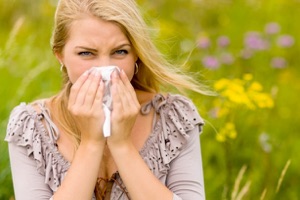2020 Hay fever season

IMPORTANT The information provided is of a general nature and should not be used as a substitute for professional advice. If you think you may suffer from an allergic or other disease that requires attention, you should discuss it with your family doctor. The content of the information articles and all illustrations on this website remains the intellectual property of Dr Raymond Mullins and cannot be reproduced without written permission.
Given that 2020 is predicted to be a wet year weather-wise, that is likely to translate into a high pollen load and bad hay fever season later in the year.
Most “hay fever” sufferers have trouble for more than 10 years. Grass pollen is not the only possible trigger; dust mite protein, mold spores and pet-derived allergens can all trigger itchy eyes, snuffly noses and asthma.
For those allergic to grass and weed pollen, avoiding the cause is easier said than done. Pollen blows long distances so is hard to avoid. Wearing sunglasses when outside, using the air-conditioning when driving cars and drying the bedding inside might reduce exposure a little.
Importantly, being allergic to ryegrass (the main pollen blowing around in Spring) is the biggest risk factor for so-called thunderstorm asthma.
There are lots of very effective medicines for treating hay fever; it’s just that medicines do not cure and ones needs to take these regularly to get the best symptoms control.
If medication is not usually effective and you get bad pollen hay fever or asthma, you are best to NOT delay decisions regarding immunotherapy, a method to switch off inhalant allergy.
Have look at your treatment options in our articles on hay fever and immunotherapy.
Last reviewed 1 September 2020
